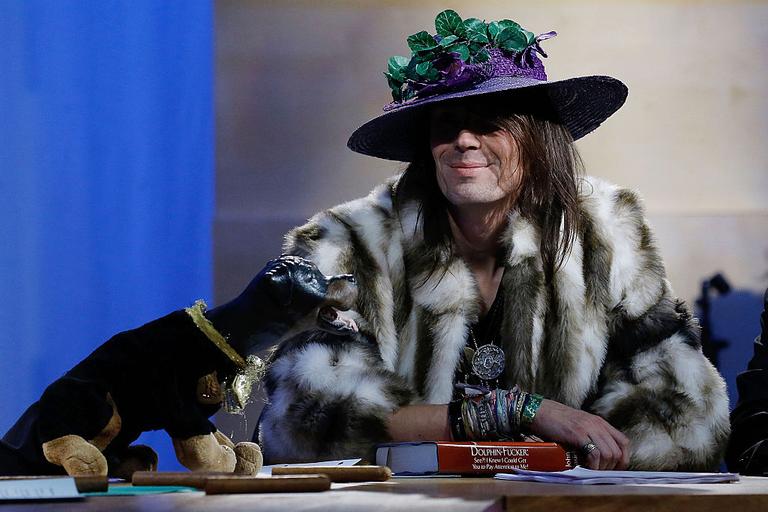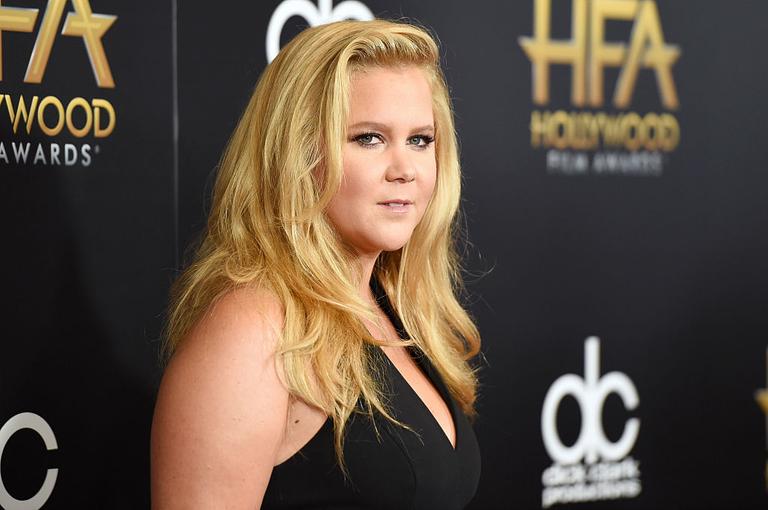Tech-Thrills: Unveiling The Surprising World Of Celebrity Shoplifters
Celebrity shoplifters, a term referring to renowned individuals who have been caught stealing from retail stores, have garnered significant attention due to the paradoxical nature of their actions.
The prevalence of celebrity shoplifting highlights the multifaceted nature of theft, its motivations, and the impact of fame on individuals. Historically, cases such as Winona Ryder's arrest in 2001 brought widespread scrutiny and sparked conversations about the intersection of wealth, privilege, and accountability.
This article delves into the phenomenon of celebrity shoplifting, exploring its causes, consequences, and the broader societal implications it raises.
- Taylor Swift Buys A 2 5 Million
- Brantley Gilbert Age Net Worth Kids Weight
- French Montana Says Max B Might Be
- Who Is Sarah Jindra S Husband Brent
- M I A Rapper Family Husband Children
Celebrity Shoplifters
Understanding the various dimensions of celebrity shoplifting is crucial for gaining a comprehensive perspective on this phenomenon. Key aspects to consider include:
- Definition
- Motivations
- Consequences
- Media Portrayal
- Public Perception
- Legal Implications
- Historical Context
- Socioeconomic Factors
These aspects are interconnected and provide insights into the complex nature of celebrity shoplifting. By examining motivations, consequences, and media portrayal, we can better understand the underlying factors that contribute to this behavior. Furthermore, analyzing legal implications, historical context, and socioeconomic factors helps us grasp the broader societal context surrounding celebrity shoplifting.
Definition
In the context of celebrity shoplifting, a clear and comprehensive definition is paramount in establishing the boundaries and characteristics of this phenomenon. It provides a framework for understanding the motivations, consequences, and societal implications associated with this behavior. Without a precise definition, discussions and analyses of celebrity shoplifting risk becoming subjective and fragmented.
- Kari Karte Has Been Sammy Hagar S
- Meet Olivia Palermo Parents Douglas Palermo Lynn
- Alyssa Grenier Obituary South Windsor Ct Alyssa
- Kevin Kline Bio Age Net Worth Wife
- Connor Payton Is Sean Payton S Son
A robust definition should encompass the essential elements that distinguish celebrity shoplifting from other forms of theft. It should consider the unique aspects of fame, privilege, and public scrutiny that often accompany these cases. By establishing a clear definition, researchers and commentators can engage in more meaningful and informed discussions about the causes and effects of celebrity shoplifting.
Moreover, a well-defined understanding of celebrity shoplifting can inform practical applications, such as developing targeted prevention strategies and public awareness campaigns. It can also guide legal and judicial responses, ensuring that appropriate penalties are applied while considering the complexities of this behavior.
Motivations
The motivations behind celebrity shoplifting are complex and multifaceted, influenced by a combination of personal, psychological, and social factors. Understanding these motivations is crucial for gaining a comprehensive perspective on this phenomenon.
- Kleptomania
A psychological disorder characterized by an irresistible urge to steal, often without regard to the value or need for the stolen items. Examples include Winona Ryder and Lindsay Lohan.
- Attention-Seeking
A desire to gain public attention or notoriety, which can be achieved through high-profile shoplifting incidents. Examples include Paris Hilton and Amanda Bynes.
- Rebellion
A form of protest against societal norms or expectations, particularly those surrounding wealth and privilege. Examples include Kristen Stewart and Avril Lavigne.
- Financial Gain
While less common, some celebrity shoplifters may steal for financial gain, either to support their lavish lifestyles or to supplement their income. Examples include Farrah Fawcett and Macy Gray.
These motivations are not mutually exclusive, and several factors may contribute to a celebrity's decision to shoplift. By examining the motivations behind celebrity shoplifting, we can gain insights into the underlying psychological, social, and cultural factors that shape this behavior.
Consequences
The consequences of celebrity shoplifting extend beyond the immediate legal repercussions, impacting the individuals involved, their careers, and the public's perception of them. Understanding these consequences is crucial for gaining a comprehensive perspective on this phenomenon.
Celebrity shoplifters often face criminal charges, ranging from misdemeanors to felonies, depending on the severity of the offense. Convictions can result in fines, imprisonment, and a permanent criminal record. These legal consequences can have a devastating impact on a celebrity's career, damaging their reputation and making it difficult to secure future work. In some cases, celebrity shoplifters may also face civil lawsuits from the stores they stole from, seeking compensation for the stolen merchandise and any associated damages.
Beyond the legal consequences, celebrity shoplifters also face significant reputational damage. The public often views shoplifting as a betrayal of trust, and celebrities who engage in this behavior may experience a loss of fan support and public esteem. Negative media coverage and social media backlash can further amplify the reputational damage, making it challenging for celebrities to rebuild their careers and regain the public's trust.
Media Portrayal
Media portrayal plays a pivotal role in shaping public perception and responses to celebrity shoplifting. The media has the power to influence narratives, highlight certain aspects of the story, and influence public opinion.
- Sensationalism
Media outlets often sensationalize celebrity shoplifting incidents, focusing on the salacious details and portraying celebrities as deviants or criminals. This can perpetuate stereotypes and reinforce negative public perceptions.
- Privacy Violation
The media can invade celebrities' privacy by publishing personal information, such as their mugshots or details of their court appearances. This can further damage their reputations and subject them to public scrutiny.
- Selective Reporting
Media coverage of celebrity shoplifting is often selective, focusing on high-profile cases involving well-known celebrities. This can create an inaccurate perception that celebrity shoplifting is more prevalent than it actually is.
- Celebrity Lifestyle Portrayal
The media's portrayal of celebrities' lavish lifestyles can contribute to public outrage over shoplifting incidents. The juxtaposition of wealth and privilege with criminal behavior can evoke feelings of anger and resentment.
In conclusion, media portrayal significantly impacts how celebrity shoplifting is perceived and understood. Sensationalism, privacy violation, selective reporting, and portrayal of celebrity lifestyles all contribute to shaping public opinion and influencing the consequences faced by celebrity shoplifters.
Public Perception
Public perception plays a significant role in shaping the consequences and societal implications of celebrity shoplifting. It encompasses various facets that influence how the public views and responds to these incidents.
- Moral Outrage
The public often expresses moral outrage over celebrity shoplifting, perceiving it as a violation of societal norms and an abuse of privilege. This outrage can fuel public condemnation and calls for severe punishment.
- Disillusionment and Loss of Trust
Celebrity shoplifting can lead to public disillusionment and loss of trust in celebrities who are seen as role models. The public may feel betrayed by celebrities who engage in such behavior, damaging their reputations and eroding their credibility.
- Selective Empathy
Public perception of celebrity shoplifting can be influenced by selective empathy. The public may be more forgiving of celebrities who are perceived as struggling or having personal issues, while being less sympathetic towards those who are seen as arrogant or entitled.
- Media Influence
The media plays a crucial role in shaping public perception of celebrity shoplifting. Sensationalized and negative portrayals can amplify public outrage and contribute to the negative consequences faced by celebrity shoplifters.
In conclusion, public perception of celebrity shoplifting is a complex and multifaceted phenomenon. It encompasses moral outrage, disillusionment, selective empathy, and media influence. Understanding these facets is crucial for comprehending the broader societal implications of celebrity shoplifting and the challenges faced by celebrities who engage in such behavior.
Legal Implications
The legal implications of celebrity shoplifting are multifaceted and far-reaching, involving a complex interplay of criminal charges, civil lawsuits, and reputational consequences. understanding these implications is crucial for comprehending the broader societal impact of celebrity shoplifting.
- Criminal Charges
Celebrity shoplifters face criminal charges ranging from misdemeanors to felonies, depending on the severity of the offense. Convictions can result in fines, imprisonment, and a permanent criminal record.
- Civil Lawsuits
In addition to criminal charges, celebrity shoplifters may also face civil lawsuits from the stores they stole from. These lawsuits seek compensation for the stolen merchandise and any associated damages.
- Reputational Damage
Celebrity shoplifting can lead to significant reputational damage, as the public often views it as a betrayal of trust. Negative media coverage and social media backlash can further amplify this damage.
- Career Consequences
The legal consequences of celebrity shoplifting can have a devastating impact on a celebrity's career. Convictions and negative publicity can make it difficult to secure future work and damage their earning potential.
The legal implications of celebrity shoplifting highlight the complex intersection of fame, privilege, and accountability. Celebrity shoplifters face not only criminal penalties but also significant reputational and career consequences. These implications serve as a cautionary tale about the potential costs of engaging in such behavior.
Historical Context
Examining the historical context of celebrity shoplifting provides valuable insights into the evolution of attitudes, societal norms, and legal responses to this phenomenon. Delving into the past can help us better understand the complexities and nuances that have shaped the current landscape of celebrity shoplifting.
- Changing Social Values
Throughout history, societal values and attitudes towards theft have shifted, influencing the perception of celebrity shoplifting. In the Victorian era, for example, shoplifting was seen as a moral failing, while in the 20th century, it was often viewed as a symptom of mental illness.
- Legal Precedents
Historical legal cases involving celebrity shoplifting have set precedents that continue to influence how such cases are handled today. The case of Winona Ryder in 2001, for instance, brought widespread attention to the issue and led to increased scrutiny of celebrity shoplifting.
- Media Influence
The role of the media in shaping public perception of celebrity shoplifting has evolved over time. In the past, newspapers and magazines were the primary sources of information about such incidents. Today, social media and the 24-hour news cycle can amplify and sensationalize these events, influencing public opinion.
- Celebrity Culture
The rise of celebrity culture has played a significant role in the historical context of celebrity shoplifting. The intense scrutiny and pressure faced by celebrities can contribute to stress and mental health issues, which may in some cases lead to shoplifting behavior.
Understanding the historical context of celebrity shoplifting allows us to trace the evolution of societal attitudes, legal responses, and media influence on this phenomenon. This historical perspective provides valuable insights into the factors that have shaped our current understanding and approach to celebrity shoplifting.
Socioeconomic Factors
Socioeconomic factors play a significant role in shaping the phenomenon of celebrity shoplifting. These factors encompass various aspects that can influence an individual's behavior, motivation, and response to the consequences of shoplifting.
- Economic Disparity
Celebrities who come from disadvantaged backgrounds may experience financial pressures or a desire to acquire material goods that they were unable to afford earlier in life. This can lead to shoplifting as a means of fulfilling unmet material needs.
- Social Marginalization
Some celebrities may feel marginalized or excluded from mainstream society due to their socioeconomic status. This sense of alienation can contribute to shoplifting as a way of asserting their identity or rebelling against societal norms.
- Media Representation
The media's portrayal of celebrities can reinforce socioeconomic stereotypes and contribute to public perceptions of celebrity shoplifters. For example, celebrities who are depicted as extravagant or out of touch with reality may be more likely to be judged harshly for shoplifting.
- Mental Health Impact
Celebrities who face financial or social challenges may experience mental health issues such as anxiety, depression, or substance abuse. These issues can impair judgment and decision-making, potentially leading to shoplifting behavior.
In conclusion, socioeconomic factors are intricately linked to the phenomenon of celebrity shoplifting. Understanding these factors provides valuable insights into the motivations, behaviors, and consequences associated with this issue. By examining economic disparity, social marginalization, media representation, and mental health impact, we can gain a more comprehensive understanding of the complexities surrounding celebrity shoplifting.
Frequently Asked Questions about Celebrity Shoplifting
This FAQ section aims to address common queries and clarify various aspects regarding the phenomenon of celebrity shoplifting.
Question 1: What are the primary motivations behind celebrity shoplifting?
Answer: Motivations can vary, including psychological factors like kleptomania, attention-seeking behavior, rebellion against societal expectations, or in some cases, financial gain.
Question 2: How does the media's portrayal influence public perception of celebrity shoplifting?
Answer: Media coverage can sensationalize incidents, focusing on salacious details and contributing to negative perceptions, while also potentially violating celebrities' privacy and selectively reporting on specific cases.
Question 3: What are the legal consequences faced by celebrity shoplifters?
Answer: Legal repercussions can range from criminal charges (misdemeanors to felonies) to civil lawsuits seeking compensation for stolen merchandise and damages, potentially resulting in fines, imprisonment, and a permanent criminal record.
Question 4: How does socioeconomic status play a role in celebrity shoplifting?
Answer: Socioeconomic factors can influence motivations; for instance, celebrities from disadvantaged backgrounds may experience financial pressures or social marginalization, contributing to feelings of alienation or unmet material needs.
Question 5: What impact does celebrity shoplifting have on the public's trust in celebrities?
Answer: Public perception often involves moral outrage and a sense of betrayal, leading to loss of trust and damage to celebrities' reputations, potentially impacting their careers and public image.
Question 6: Is celebrity shoplifting a symptom of deeper psychological or social issues?
Answer: In some cases, underlying mental health issues or social pressures may contribute to shoplifting behavior; however, each case should be evaluated individually, considering various potential motivations and circumstances.
These FAQs provide insights into key aspects of celebrity shoplifting, highlighting its complexity and the interplay of individual motivations, societal perceptions, legal implications, and media portrayal. Understanding these factors enhances our comprehension of this phenomenon and paves the way for further exploration of its causes, consequences, and potential solutions.
The discussion on celebrity shoplifting continues in the following section, delving deeper into the psychological and sociological factors that contribute to this behavior.
Tips for Understanding Celebrity Shoplifting
This section provides practical tips to enhance your understanding of celebrity shoplifting, its causes, and societal implications.
Tip 1: Consider Psychological Factors
Examine the psychological motivations behind shoplifting, such as kleptomania, attention-seeking behavior, and rebellion.
Tip 2: Analyze Media Portrayal
Evaluate how the media shapes public perception of celebrity shoplifting, including sensationalism and privacy violations.
Tip 3: Explore Socioeconomic Influences
Investigate the role of economic disparity, social marginalization, and mental health in contributing to shoplifting behavior.
Tip 4: Examine Legal Consequences
Understand the legal implications of celebrity shoplifting, including criminal charges, civil lawsuits, and reputational damage.
Tip 5: Assess Public Perception
Analyze how public outrage, moral judgments, and selective empathy influence the consequences faced by celebrity shoplifters.
Tip 6: Consider Historical Context
Examine how societal attitudes, legal precedents, and media influence have evolved over time to shape our understanding of celebrity shoplifting.
These tips empower you to develop a comprehensive understanding of celebrity shoplifting, its causes, and broader societal implications.
In the concluding section, we will explore potential solutions and strategies for addressing celebrity shoplifting, building on the insights gained from these tips.
Conclusion
This exploration of celebrity shoplifting has provided insights into the complex interplay of motivations, societal perceptions, legal consequences, and media portrayal that shape this phenomenon. Key findings include the role of psychological factors, such as kleptomania and attention-seeking behavior, in driving shoplifting; the influence of socioeconomic disparities and social marginalization in contributing to underlying motivations; and the significant impact of media sensationalism and public outrage in shaping the consequences faced by celebrity shoplifters.
The phenomenon of celebrity shoplifting raises important questions about the pressures and challenges faced by celebrities in the public eye, the complexities of mental health and addiction issues, and the role of the media in shaping public opinion. It also highlights the need for a balanced and nuanced approach to understanding and addressing this issue, considering both the individual circumstances of each case and the broader societal implications.
- Meet Olivia Palermo Parents Douglas Palermo Lynn
- Has Adam Lambert Been With A Woman
- Who Is Rogel Lazaro Aguilera Mederos Wife
- Antc3b3nio Guterres Wife Meet Catarina Marques
- Meet The Late Ray Liotta S Daughter

Celebrity Shoplifters — Stars Who Admitted to Stealing

Celebrity Shoplifters — Stars Who Admitted to Stealing

Celebrity Shoplifters — Stars Who Admitted to Stealing